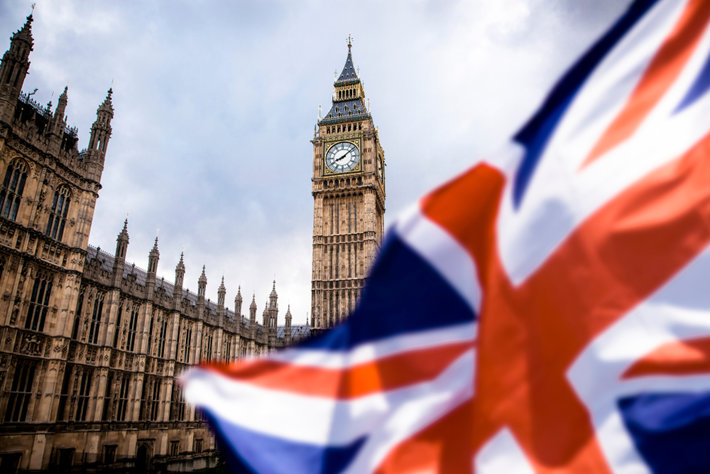It all started in April when Britain and Rwanda worked out a deal. In exchange for Rwanda taking unwanted immigrants off Britain’s hands, the latter would send the African nation millions of pounds in development aid. Then the re-routed immigrants could apply for asylum there instead of in the UK.

The reaction of religious groups to the deal was swift. Archbishop of Canterbury Justin Welby said of the one-way flights to Rwanda, “sub-contracting out our responsibilities” for refugees can’t stand up to God’s scrutiny.
Another senior Anglican cleric, Archbishop of York Stephen Cottrell, called the Rwanda plan “depressing and distressing,” adding, “after all, there is in law no such thing as an illegal asylum-seeker. It is the people who exploit them that we need to crack down on, not our sisters and brothers in their need.”
In June the European Court of Human Rights stepped in and blocked the action between Britain and Rwanda on the grounds of “a real risk of irreversible harm.”
Several days later, in retaliation and an apparent effort to cement its decision into British law—if not international human rights law—the UK government published a Bill of Rights, that revises and in places reinvents human rights protections. For example, if the bill is approved by Parliament, it will make legal claims for human rights more difficult. It will also remove the UK from the jurisdiction of the European Court of Human Rights, enabling the government to ignore the judgments of that court in favor of British courts.
The British government positioned the changes as an assertion of British sovereignty in the wake of Brexit, as a signal, in short, that the UK was no longer bound by the authority of the European Union (EU)—a specious argument because the European Court of Human Rights is not connected to the EU. It is an international tribunal sponsored by 46 countries.
In support of the new Bill of Rights, Justice Secretary Dominic Raab said that by replacing the UK’s Human Rights Act, the new bill would “curb abuses of the system and inject a bit more common sense” into human rights law.
But various rights groups said the government’s move would weaken human rights by making it more difficult for ordinary people to hold the powerful to account. With the bar raised for human rights claims, public bodies would feel less obligated to act with those rights in mind.
Stephanie Boyce, president of the Law Society of England and Wales, said the new Bill of Rights was “a lurch backwards for British justice.”
“Authorities may begin to consider some rights violations as acceptable, because these could no longer be challenged under the Bill of Rights despite being against the law,” she said.
And Sacha Deshmukh, Chief Executive of Amnesty International U.K., said, “Ripping up the Human Rights Act means the public is being stripped of its most powerful tool to challenge wrongdoing by the government and other public bodies. This is not about tinkering with rights, it’s about removing them. Recent polling shows that the horrors of Ukraine have brought the value of basic human rights home to everyone in this country, and the public does not want the government weakening basic human rights protections.”
Mr. Deshmukh added, “The UK must not undermine the global system of human rights by letting politicians pick and choose which rights they think people in this country should have.”
The government asserts that the new Bill of Rights will “strengthen freedom of speech and curb bogus human rights claims.”
Meanwhile, on June 14 the UK deported the immigrants in defiance of the European Court. On the eve of the 4,000-mile flight, the archbishops of Canterbury and York, and the other 23 bishops in the House of Lords, wrote in a letter to The Times that the controversial move “should shame us as a nation.”
The letter states, “Whether or not the first deportation flight leaves Britain today for Rwanda, this policy should shame us as a nation. The shame is our own because our Christian heritage should inspire us to treat asylum seekers with compassion, fairness and justice, as we have for centuries. Deportations, and the potential forced return of asylum seekers to their home countries, are not the way. This immoral policy shames Britain.”
The bill to replace the Human Rights Act with a new Bill of Rights is currently in the House of Commons.
_______________
From its beginnings, the Church of Scientology has recognized that freedom of religion is a fundamental human right. In a world where conflicts are often traceable to intolerance of others’ religious beliefs and practices, the Church has, for more than 50 years, made the preservation of religious liberty an overriding concern.
The Church publishes this blog to help create a better understanding of the freedom of religion and belief and provide news on religious freedom and issues affecting this freedom around the world.
The Founder of the Scientology religion is L. Ron Hubbard and Mr. David Miscavige is the religion’s ecclesiastical leader.
For more information visit the Scientology website or Scientology Network.


